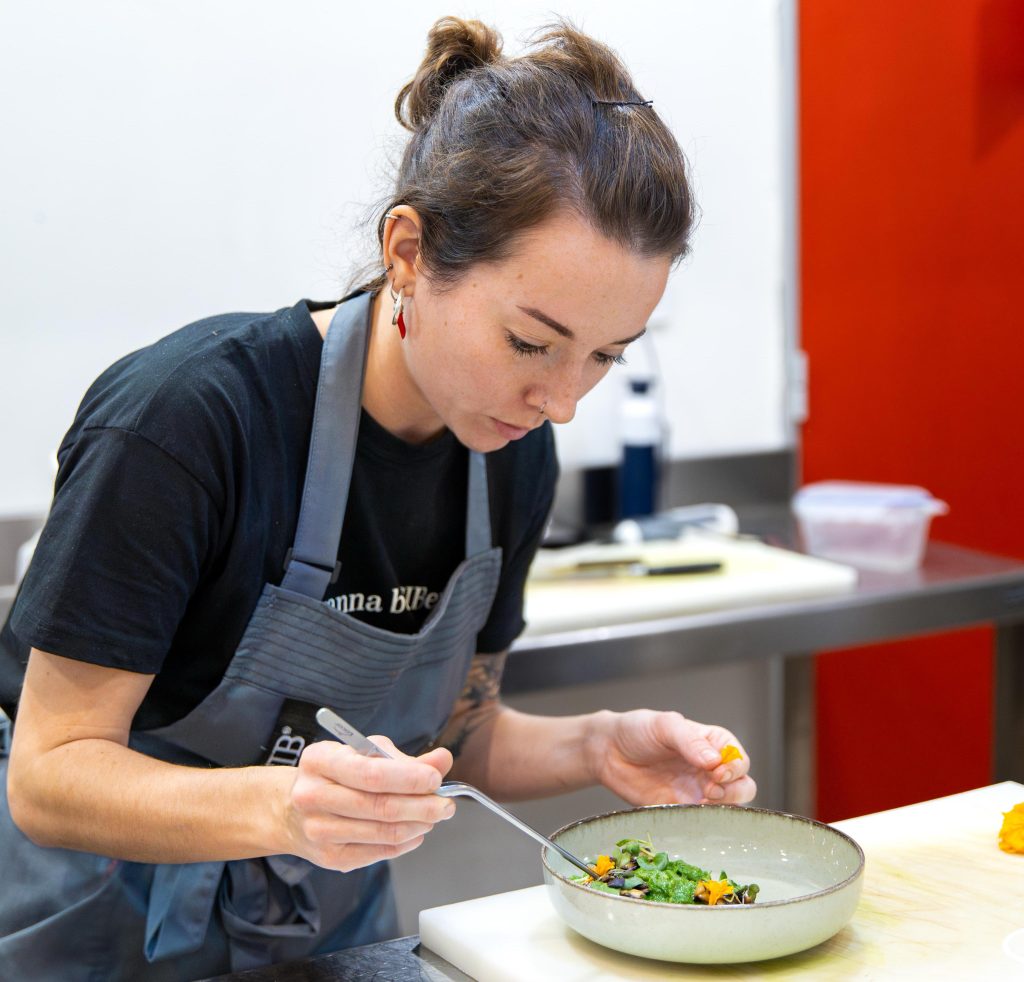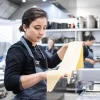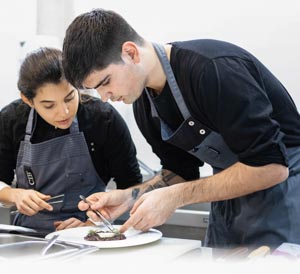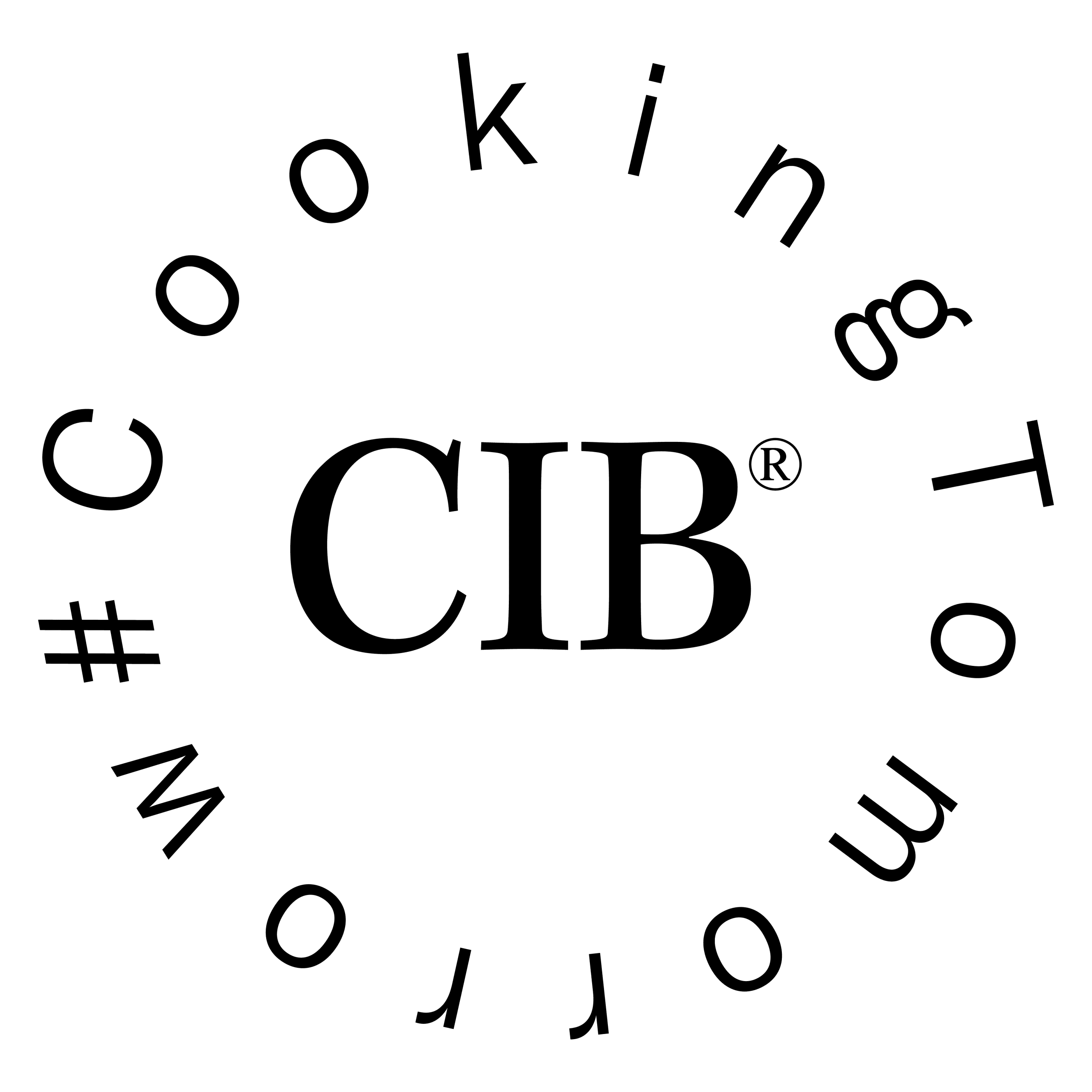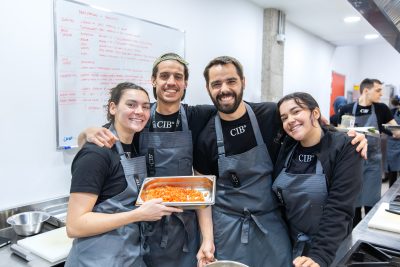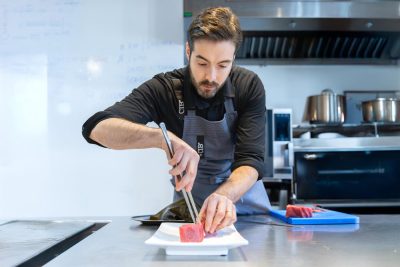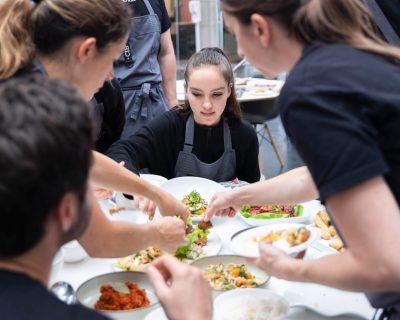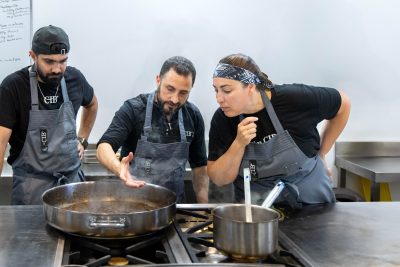The profession of private chef is no longer a rarity reserved for celebrities and the wealthy. It has become one of the fastest-growing trends in contemporary gastronomy. In a world where personalization is everything, more and more families, executives, and athletes are seeking something that restaurants cannot provide: an intimate, exclusive culinary experience tailored to their lifestyle.
Learning how to become a private chef opens the door to a future where you don’t just cook—you design experiences, accompany different ways of living, and build your own brand. In this article, you’ll discover what you need to become a private chef, how to grow into a personal chef, and why this career is part of the future of gastronomy.
What is a private chef?
A private chef is a professional who offers an exclusive, personalized gastronomic experience, working in the intimacy of private homes, exclusive locations such as yachts, or high-level events. In many cases, the private chef becomes a trusted member of the household, building a close and stable relationship with the client.
In a world where people increasingly value health, wellbeing, and unique experiences, the private chef stands out as one of the professions of the future in gastronomy.
Differences between a Private Chef vs. Restaurant Chef
| Criteria | Private Chef | Restaurant Chef |
| Work environment | Private homes, yachts, exclusive events | Restaurant kitchens, brigade system |
| Creativity | Very high: 100% personalized menus | Limited to the restaurant’s menu and concept |
| Client interaction | Direct and constant | Generally minimal ir nonexistent |
| Schedule | Flexible but demanding, based on client needs | Fixed shifts, split days, long hours |
| Management | Full self-management: shopping, finances, logistics | Focused on kitchen operations and team management |
The Skills Map: What You Really Need to Become a Private Chef
At CIB we believe that the chefs of the future are not measured only by their technique, but by their ability to reinvent themselves, lead projects, and connect with people. Being a private chef means stepping into a role where you’re not only a cook—you’re a creator, a strategist, and, above all, a trusted guide for your clients.
Here are the three essential pillars that will define your career:
Culinary excellence and limitless creativity
Technique is the foundation, but it’s not the end goal. A private chef must transform technique into creativity without borders: menus that speak to each client, experiences that change every week, and dishes that combine tradition, innovation, and storytelling.
What truly distinguishes a CIB-trained chef is the ability to surprise, adapt, and create meaning with every plate, always respecting the product but daring to push its boundaries.
Business vision: you are your own brand
Unlike a restaurant chef who works under the umbrella of a concept or brand, as a private chef you are the brand. That means learning how to manage your finances, price your services, negotiate with suppliers, and design offers that are profitable and sustainable.
This is where the CIB approach is disruptive: we don’t train you just to cook—we prepare you to think like an entrepreneur. Because in the 21st century, every chef must also be a strategist capable of creating their own future.
Emotional intelligence and communication
Cooking in a private home is a matter of trust. You are not only serving food, you are entering someone’s personal space, their culture, their family. That requires much more than culinary talent: it demands empathy, listening, adaptability, and discretion.
At CIB we say that empathy is the new kitchen tool. A private chef must know how to read unspoken desires, adapt to different lifestyles, and build long-term relationships based on respect and professionalism.
What to Study to Become a Private Chef?
The role of the private chef goes far beyond culinary skills. Managing clients, preparing budgets, and delivering memorable gastronomic experiences are fundamental.
That’s why finding a training program that integrates these aspects is so valuable. At the Culinary Institute of Barcelona (CIB), we’ve welcomed students motivated to become private chefs. Some already have culinary experience and want to specialize; others start from scratch with the clear goal of developing this career.
All of our programs share the same foundation: creativity, innovation, and a forward-looking vision. This is what shapes students into change agents, adaptable professionals, and leaders of the future.
Your training path to become a private chef
STEP 1: PCAC · Haute Chef Cuisine Diploma – From zero to hero in 9 months
Every great chef starts with strong fundamentals. The PCAC · Diploma in Haute Cuisine provides an all-encompassing formation: technical mastery, deep product knowledge, context, and creative mindset—the foundation of a future private chef.
STEP 2: PEC · Culinary specialization program – Define your niche
In a competitive market, specialization is your advantage. Depending on the kind of experience you want to offer clients, you might choose one of these programs:
- PEC·H Integrative Healthy Cooking: focused on nutrition, healthy eating, and personalized culinary or consulting services.
- PEC·T Advanced Culinary Techniques: explore innovative techniques for creating memorable experiences in private dinners, events, or bespoke menus.
- PCD Master in Pastry and Chocolate Arts: available as a full master’s or split modules, to elevate your skills in the world of desserts and chocolate.
STEP 3: DCS · Diseño, Creación y Estrategia de negocios de restauración; haz realidad tu idea de negocio
A program in culinary entrepreneurship designed for those who want to create and launch their own business proposal. With a disruptive, innovative approach aligned with the demands of the 21st-century industry.
Income Potential: How Much Does a Private Chef Earn?
The salary range for private chefs varies by country, client, and experience—but in 2025 it stands out as one of the most lucrative culinary career paths:
-
International markets: between €60,000 and €120,000 per year.
-
Spain and Latin America: more variable, but showing strong growth in the luxury segment.
Your income potential grows with training, specialization, and brand building. The clearer and more unique your value proposition, the greater your opportunities. Programs like the GDC · Grand Diploma Chef or MTC · MetaChef provide the deep culinary expertise and leadership skills needed to stand out at the top.
How much does a head chef earn?
Steps to Becoming a Private or Personal Chef
Becoming a private chef doesn’t just mean cooking—it also means thinking like a culinary entrepreneur. As an independent professional, you are your own brand: you define how you present yourself, how you manage your business, and the unique value you bring to clients.
Here’s a practical roadmap to get started:
Define your niche and unique value proposition (UVP)
Do you want to work with athletes focused on performance? Families who value healthy convenience? Or gourmet clients seeking sophistication and creativity? Knowing your niche is what will help you stand out.
Create a simple business plan
You don’t need a 100-page document. Just outline:
- Services (weekly menus, private events, travel, exclusive contracts).
- Pricing structure (hourly, per service, monthly retainers).
- Costs to cover (ingredients, travel, equipment, marketing).
Take care of legal and sanitary requirements
Working in private environments requires compliance with food safety standards, liability insurance, and, in some countries, sanitary licenses. Being rigorous with the legal side builds client trust.
Build your portfolio and online presence
Clients will look you up online before hiring. You need:
- A professional website with high-quality photos, sample menus, and testimonials.
- Active social media accounts showing your style and personality (Instagram/TikTok for visuals, LinkedIn for executives).
- A coherent narrative that reflects your philosophy and values.
Develop a strategy to get your first clients
Networking is your best ally. Consider:
- Hosting tasting dinners or showcookings for small, targeted groups.
- Partnering with premium suppliers who can recommend you to their clients.
- Staying connected with former colleagues who may recommend you for private work.
- Collecting testimonials from your first clients to build social proof.
The CIB Has Everything You Need to Become a Private Chef
Being a private chef is one of the most exciting and demanding professions in modern gastronomy. It requires technique, vision, empathy, and the ability to turn cooking into an intimate, memorable experience.
At the Culinary Institute of Barcelona, we train chefs who don’t just cook—they lead the evolution of gastronomy. Because the real revolution doesn’t happen only in restaurants, but in the way chefs redefine their role in people’s lives.

